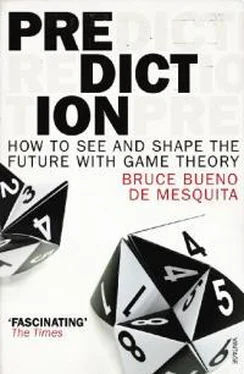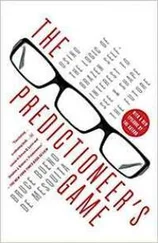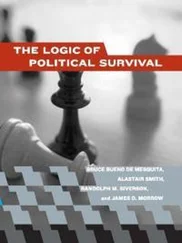Could it be that Mother Teresa’s ambition for herself was tied to her faith in an eternal reward? It makes sense to pay the price of sacrifice for the short, finite time of a life span if the consequence is a reward that goes on for infinity in heaven. In fact, isn’t that exactly the explanation many of us give for the actions of suicide bombers, dying in their own prideful eyes as martyrs who will be rewarded for all eternity in heaven?
Or maybe, in Mother Teresa’s case, the rational, calculating motivation behind her deeds was more complex. We know now that she questioned her religious faith and the existence of God. 4Her doubts apparently began shortly after she started to minister to the poor and sick in Calcutta. By then maybe she felt locked into the religious life she chose for herself. Doubting God and ill-prepared for a life outside the Church, perhaps she found a perfect strategy for gaining the acclaim in life that she feared might not exist after death. Was she looking for an eternal reward, or for reward in the here and now? Only she could really know. We applied game theorists are content to observe that she acted as if being rewarded was her motivation. That is, she was not cold and materialistic; she was warm and materialistic. That is enough to make her a fine subject for analysis as a rational, strategic player in the game of life—and maybe enough to earn her sainthood as well.
Game theory draws our attention to important principles that shape what people say and do. First of all, just like Mother Teresa or a suicide bomber, all people are taken to be rational. That just means we assume they do what they believe is in their own best interest, whether that’s making as much money as they can or gaining entry to heaven or anything else. They may find out later that they made a poor choice, but in game-theory thinking we worry about what people know, believe, and value at the time they choose their actions, not what they find out later when it’s too late to do something else. Game theory has no place for Monday-morning quarterbacks. It’s all about what to do when decisions must be made, even if we cannot know for sure what the consequences of our actions will be.
This notion of rational action seems to trouble some people. Usually that’s because they mean something different from what an economist or political scientist means when talking about rationality. Words can have many meanings, so we must be careful to define ideas carefully. As it happens, game theorists insist on a particular use of the word “rational.”
Some folks seem to think that rational people must be super smart, never making a mistake, looking over each and every possible thing that could happen to them, working out the exact costs and benefits of every conceivable course of action. That is nonsense. Nobody is that smart or diligent, nor should they be. Actually, checking out every possible course of action, working out everything that possibly could arise, is almost never rational, at least not as the term is used in my world. It is never rational to continue searching for more information, for example, when the cost of finding out more is greater than the expected benefits of knowing more. Rational people know when to stop searching—when enough is enough. (I try to impart this message to my students. When they tell me they want to make their term papers as good as possible, I plead with them not to. A paper that is worked on until it is as good as possible will never be finished.)
Another way that people talk about rationality that has nothing to do with what “rational choice theorists” have in mind is to discuss whether what someone wants is rational or not. Distasteful as the fact may be, people with crazy ideas can be perfectly rational. Rationality is about choosing actions that are consistent with advancing personal interests, whatever those interests may be. It has nothing to do with whether you or I think what someone wants is a good idea, shows good taste or judgment, or even makes sense to want.
I certainly think what Adolf Hitler said he wanted and what he did to advance his heinous goals were evil, but I am reluctant to let him off the hook with an insanity plea by saying he was not rational. His actions were rational given his evil aims, and therefore it was perfectly right and proper to hold him and his henchmen accountable.
The same holds for modern-day terrorists. They’re not nuts. They are desperate, calculating, disgruntled people who are looking for ways to force others to pay attention to their real or perceived woes. Dismissing them as irrational misses the point and leads us to make wrongheaded choices about how to handle their threat. We do ourselves no service by labeling people as insane or irrational simply because we can’t understand their goals. Our attention is better fixed on what they do, since we probably can change or impede their actions even when we can’t alter what they want.
What exactly does rationality require? Actually it’s a simple idea. To be rational, a person must be able to state a preference among choices, including having no preference at all (that is, being truly indifferent). Also, their preferences must not go in circles. For instance, if I like chocolate ice cream better than vanilla—who doesn’t?—and vanilla better than strawberry, then I also presumably like chocolate ice cream better than strawberry. Finally, rational people act in accordance with their preferences, taking into account the impediments to doing so. For instance, one ice cream parlor might be sold out of chocolate more often than another. I might be willing to risk having to settle for vanilla if the place that runs out also has much better tasting chocolate. Taking calculated risks is part of being rational. I just need to think about the size of the risk, the value of the reward that comes with success, and the cost that comes with failure, and compare those to the risks, costs, and benefits of doing things differently.
Since rational people take calculated risks, sometimes things turn out badly for them. Nobody gets everything they want. I sometimes end up drinking soda I don’t like or eating vanilla or strawberry ice cream despite my best efforts to obtain what I prefer. That’s what it means to take risks. We absolutely cannot conclude that someone was irrational or acted irrationally just because at the end of the day they got a rotten outcome, whether that means being stuck with strawberry ice cream, losing a war, or even worse.
Rational choices reflect not only thinking through risks but also trying to sort out costs and benefits. Costs and benefits can be tricky to work out. I could be unsure of what those costs or benefits are likely to be. That too can be an important impediment or constraint on my rational decisions. Sometimes we have to make decisions even though we are in the dark about the consequences. Fortunately, that doesn’t happen much with buying ice cream or soda, but it sure happens a lot when negotiating a big business deal or forging a new foreign policy. In those cases, we had better be careful to weigh the sources of our uncertainty carefully, and not plunge headlong into some dangerous endeavor with no more than rose-colored glasses to guide our way. We may not get the consequence we want, but we can be careful to manage the range of consequences that are likely to arise. (Just imagine how different the debacle in Iraq might have been, for example, had American leaders not thought that the Iraqi people would be dancing in the streets, kissing American soldiers after Sad-dam was overthrown the way Parisians did when Americans marched into Paris behind Charles de Gaulle on August 26, 1944.)
The question remains, however, as to when someone is actually irrational. In everyday usage, lots of behavior looks irrational even though on closer inspection it turns out not to be. Sometimes critics point to behavior like leaving tips in restaurants, giving gifts to friends, or—sorry, I don’t mean to be gross—flushing the toilet in public places like airports or museums as irrational acts. They argue that all of the benefit goes to someone else, not to the tipper, gift giver, or flusher. I say, not true.
Читать дальше











